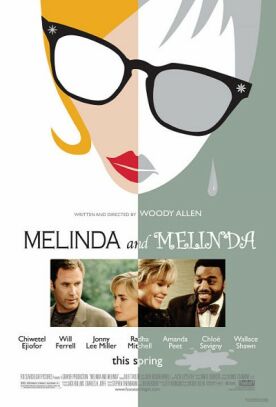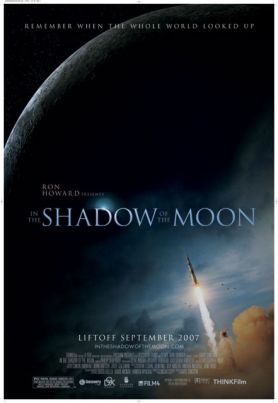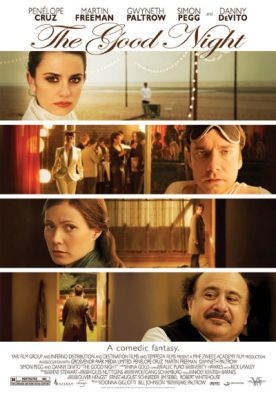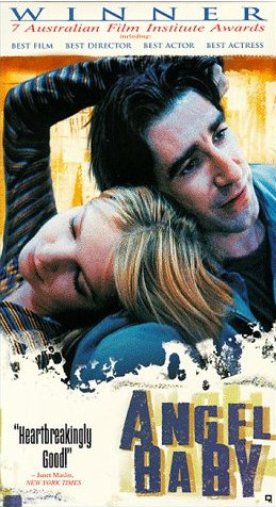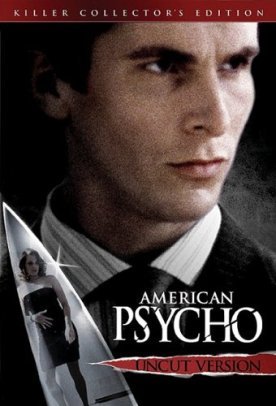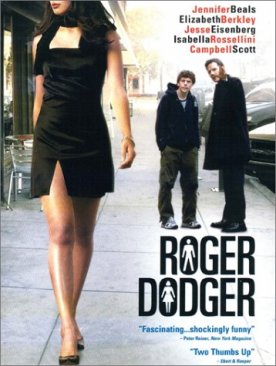Melinda and Melinda
Who was it who said it’s the hardest thing in the world to be funny? It might have been Woody Allen, come to think of it. But Woody Allen himself is not even trying anymore. His new film, Melinda and Melinda is fake from the set-up, which consists of a writer of comic plays and a tragedian arguing about whether life is fundamentally comic (the tragedian’s argument) or tragic (the comic writer’s). It’s a parody of a Woody Allen movie. And anyway, who writes tragedies today? Mr Allen seems to think there is something profound about his banal point that if you change what happens to your characters, you automatically go from tragedy to comedy or vice versa. If you show happy things befalling them, it’s a comedy; sad things, it’s a (sort of) tragedy. Who knew?
But the former writer of comedy thinks it’s worth making a whole movie to illustrate the point. So he gives us a matched pair of stories, both beginning with the same heroine, Melinda (Radha Mitchell), as she arrives unexpectedly at a dinner party. In both stories, Melinda has lost her husband, a doctor, and her children because of her affair with a photographer. The husband has used his political connections to prevent her from even seeing her children, and she is now something of a lost soul.
In the tragic story, Melinda arrives at the door of Lee (Jonny Lee Miller), an out of work actor and part-time drama teacher, and Laurel (Chloë Sevigny), a “Park Avenue princess.” The dinner party is being given for Laurel’s old friend Cassie (Brooke Smith) and her husband, Peter (Zak Orth), a lawyer, and a play director, from whom Lee hopes to get a good part. The Melinda of this story is an old friend of Laurel’s and Cassie’s whose marital troubles have finally cast her up on her friend’s doorstep — rather to the annoyance of Lee, who wonders how long she will be staying.
The comic Melinda turns up, counter-intuitively, as a stranger from an apartment downstairs who has taken too many sleeping pills. The dinner party she breaks in on is hosted by Susan (Amanda Peet) and Hobie (Will Ferrell) for an alleged billionaire called Steve Walsh (David Aaron Baker) — someone Susan, a director, hopes will put money into her new film, to be called The Castration Sonata. (That’s not really a joke. Not even a Woody Allen joke. It’s a parody of a Woody Allen joke.) Hobie is, like Lee, an out-of-work actor. He is also hoping for a part as a result of the party — specifically that of the psychiatrist in Susan’s movie, whom he proposes to play, as he has played a succession of classic roles, “with a limp.” Reference to the limp is meant to be a running gag. Comic Melinda throws up over Susan and Hobie’s expensive carpet and then sits down for a glass of wine and some take-out Chinese food with the dinner guests, as the Chilean sea bass carefully prepared by Hobie has burned in the alarm ensuing upon her entrance. She becomes friends with Susan and Hobie.
In both tragic and comic stories, Melinda is “fixed up” by her friends with a lonely dentist. The dentist in the tragic story is called Bud Silverglide (Geoffrey Nauffts), one of several allegedly comic names in the picture. She is not interested in him. Instead, she forms a sudden and unexpected attachment to the pianist at the party, Ellis Moonsong (Chiwetel Ejiofor) — oh those comic names! — and they begin an affair. But Laurel, who is increasingly unhappy with Lee, also falls for Ellis. Something a bit like tragedy ensues. The dentist in the comic story, Greg (Josh Brolin), proves a hit: a dreamboat with his own house in the Hamptons. Melinda falls for him just as Hobie, who is neglected and ill-treated by Susan, discovers his attraction to her. Hobie’s jealousy is meant to be funny.
A sensitive soul unwilling to hurt Susan (“My podiatrist? I couldn’t fire him when he operated on the wrong foot” — another parody joke), Hobie rubs an old-fashioned oil lamp and makes a wish: that he can have Melinda without hurting Susan. (There is a lamp in the tragic story too, but an explicit affirmation that rubbing it will do no good to anyone.) When Hobie returns home, he discovers Susan in bed with Steve Walsh, the billionaire, and she informs him that she wants a divorce. More ups and downs too tedious to relate follow — one involves a stock Woody Allen fantasy figure, the nymphomaniac Republican (Vinessa Shaw) — before the inevitable happy ending. That’s how we know it is a comedy. We certainly don’t know it because of the jokes.
The closest the film gets to making one is when Hobie is moved by his luck in going home with the nymphomaniac to direct his eyes heavenwards and mutter: “I’ll never vote against school prayer again.” Though nearer the mark than most of the film’s attempts at humor, even this is slightly off target. No one will ever again vote against school prayer — or for it either — since no one is given the chance to vote on what some judge has decided is unconstitutional. It is something the film might have noticed if it had had any interest in the sexy Republican except as a caricature. But Woody Allen seems not to have much interest in anything anymore, except perhaps going through the motions of playing the great comic film-maker — one who wants us to think he believes life is tragic, but who actually believes nothing at all.
Discover more from James Bowman
Subscribe to get the latest posts to your email.

